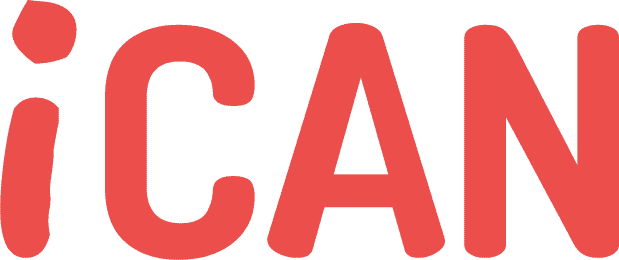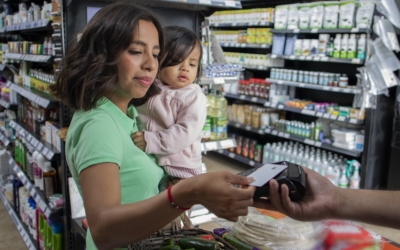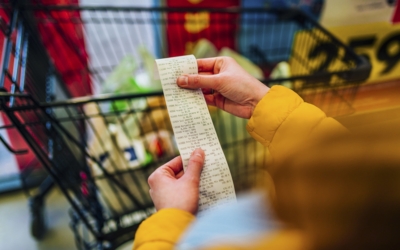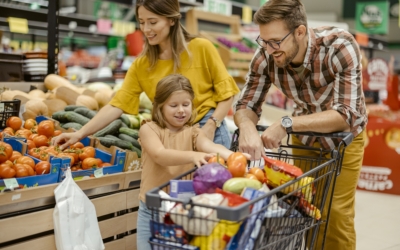I Can for Kids (iCAN) witnesses a much higher rate of food insecurity among Indigenous families than we would expect based on the mix of different cultures living in Calgary. In 2023, our agency partners estimated that 33% of all the households who accessed our program identified as First Nations, Metis, or Inuit. In contrast, the most recent census data for Alberta shows that only 3% of all Calgarians identified as Indigenous.
This blog explores the evidence on food insecurity among Indigenous groups and the many reasons that iCAN partners with agencies who serve this specific population.
What do we know about food insecurity among Indigenous families?
While countless studies show that Indigenous households endure much higher rates of food insecurity, there isn’t enough research exploring their unique life experiences and circumstances in more detail. Like all food-insecure populations, we know that Indigenous families are at much higher risk when they have too little income to afford all their basic needs. There is also data to show that:
- 40% of Indigenous children in Canada live in a food-insecure home compared to 25% of children among the general population
- 34% of Indigenous adolescents are food-insecure compared to 20% of adolescents in the general population
- Indigenous households in Calgary are nearly twice as likely to live in poverty compared to non-Indigenous households
- more than 35% of Indigenous households report food insecurity across Canada
- the rate of food insecurity among Indigenous households living off-reserve is double the rate of the general population in Canada
What leads to greater rates of food insecurity among Indigenous families?
Research notes how a complex mix of social, health, economic, and political dynamics has shaped the adverse conditions that lead Indigenous households to report severe food insecurity more frequently. These issues and influences include, but are not limited to:
- discrimination that impedes their ability to access supportive services, find regular employment, secure higher wages, and maintain stable housing
- larger household sizes that include a greater number of children
- reduced access to fertile lands to gather traditional foods through foraging, hunting, and fishing practices
- increased healthcare costs associated with growing rates of chronic conditions, intergenerational trauma, and high incidence of mental health concerns
- ongoing experiences of social, geographical, and cultural isolation
How do we target our program to Indigenous families?
Census data shows that more than 1 in 4 of the Indigenous population in Alberta is younger than 15 years old. To help reduce food insecurity among these children, iCAN currently partners with two frontline agencies who specifically serve Indigenous families through three different programs, including housing and youth engagement. We also target our gift cards through a City of Calgary community program that builds awareness of Indigenous culture among children. In addition, we collaborate with several other agencies who serve a variety of Indigenous households needing assistance to overcome barriers in the urban environment. Many partners support Indigenous parents and families to navigate additional services and systems that promote well-being and safeguard against social bias and racism.
During our program evaluation, an agency staff member shared an uplifting story of an Indigenous woman who finally secured stable housing for her family:
“The iCAN grocery gift cards ensured she had food in her cupboards for her girls when they arrived in their new home to live together for the first time in a while. This sent the message to her daughters that they are safe again and that they will be taken care of. We also helped this client obtain all the financial benefits she was eligible for as a single mother. She has done well for herself since then. She obtained a car and a job. Her girls are happy and healthy. iCAN was there to help boost her confidence and morale as she moved through big changes in her life.”
If you’d like to take a deeper dive into food insecurity among Indigenous peoples in Alberta, we recommend starting with the Food, Nutrition, and Indigenous Peoples in Alberta report from Alberta Health Services.
When you donate today, you restore a fundamental sense of community and social inclusion for food-insecure Indigenous children and families in Calgary.
To join iCAN’s expanding list of donors, sponsors, and champions, check out the different ways you can get involved or donate.
To learn more about I Can for Kids and their unique approach to childhood food insecurity, visit www.icanforkids.ca
About Donald Barker
Donald Barker has worked as a registered dietitian for more than 25 years. He also has a professional background in communications and has long advocated for populations who face adverse, unjust, or systemic barriers that lead to higher rates of poor social, mental, emotional, and physical health outcomes. Donald currently volunteers as an Advisor with iCAN to support our transition towards evidence-based approaches that help improve the well-being of children in Calgary who live in low-income and food-insecure households.
About I Can for Kids Foundation
I Can for Kids works closely with multiple agency partners to target and distribute grocery gift cards to food-insecure families who are most in need. The iCAN grocery gift card program is a more dignified and inclusive approach to dealing with food insecurity, allowing families to shop where everyone else shops and to choose foods that are appropriate for their health and cultural needs. Explore their website to discover more about iCAN’s impact over the years.
For more information and media inquiries, please contact iCAN Executive Director, Bobbi Turko at bobbi@icanforkids.ca.




